












Page Turner is a magazine for Georgia’s readers and writers and any Georgiaphiles who enjoy learning about our state’s literary offerings, heritage, and events.














Page Turner is a magazine for Georgia’s readers and writers and any Georgiaphiles who enjoy learning about our state’s literary offerings, heritage, and events.
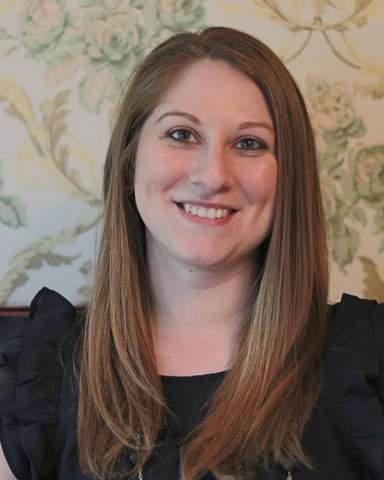
Each quarter, a team of experienced, award-winning writers will bring you suggested readings from the Reader’s Corner, tips and helpful advice from the Writer’s Corner and Writer’s Toolbox, and a feature on notable Georgia writers. For children, their educators and guardians, and anyone working on children’s books, we will feature four Children’s Books each quarter with suggested activities in Children’s Corner Spotlight on Book Clubs will share book club stories from across our state, and maybe inspire you to start one! These articles will be staples of each issue, but others will pop up from time to time, so don’t miss out each quarter.
Brought to you by:
Georgia Writers Museum celebrates the state’s rich literary history, promotes its contemporary writers, educates readers and writers of all ages, and connects people to the literary arts of Georgia.
Atlanta Writers Club teaches the craft and business of writing, supports the local literary community, and encourages more reading by the public.
MelissaSwindell
Executive Director



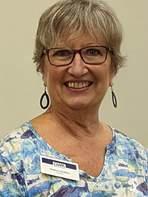
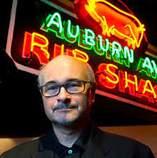


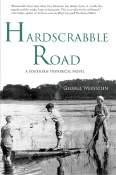

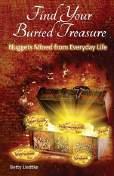
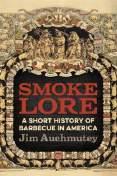

ManagingEditor,PageTurner
Author&KeynoteSpeaker
Chip is a renowned keynote speaker and author of several bestselling, award-winningbooks.HehasappearedliveonCNBC,FoxBusiness,and CNN, and his work has been featured in Fortune, Wall Street Journal, Forbes, USA Today, Entrepreneur, Inc. Magazine, and Harvard Business Review
GeorgeWeinstein
Writer,PageTurner
ExecutiveDirector,AtlantaWritersClub
Georgeisanaward-winningauthor,two-timePresidentofAtlantaWriters Club, and since 2008, he has directed the twice-yearly Atlanta Writers Conference, bringing in acquisitions editors and literary agents to help AWC members understand the business of writing and achieve their dreamsofpublication.
KimConrey
Writer,PageTurner
Kim is the author of the sci-fi romance series, Ares Ascending, and the urbanfantasy,NicholasEternal Shewasthe2023GeorgiaAuthorofthe YearforRomance.
BettyLiedtke
WriterandCopyEditor,PageTurner
FormerColumnist,Chanhassen(MN)Villager
Award-winning columnist Betty Liedtke currently serves as Secretary of Georgia Writers Museum, and is an active member of Toastmasters International, Pathways to Hope—Africa, and the Greensboro Writers Guild.
JimAuchmutey
Writer,PageTurner
FormerReporter,AtlantaJournal-Constitution
Jimspentalmost30yearsasawriterandeditorfortheAJC,specializing in stories about the South and its history and culture. He was twice namedtheCoxNewspaperschain’sWriteroftheYearandwashonored bytheRobertF.KennedyJournalismAwards,andtheAssociatedPress.
RogerJohns
Writer,PageTurner
Rogerisaformercorporatelawyer,retiredcollegeprofessor,theauthor of the Wallace Hartman Mysteries, and the 2018 Georgia Author of the YearforMystery/Detective.
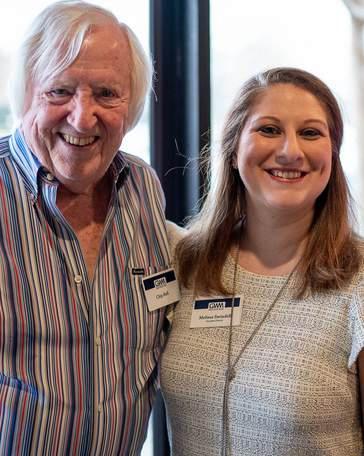
Chip and I invite you to:
Page Turner is a magazine for Georgia’s readers and writers and any Georgiaphiles who enjoy learning about our state’s literary offerings, heritage, and events.
Share your feedback. Do you love Page Turner? Let us know! Tell us what you want to see in upcoming issues. Sponsor a low-cost ad for your book talk, writing workshop, festival, or bookstore. Write with us! Submit an application to join our all-volunteer writing team.
Spotlight a Book Club. Are you in a book club, or do you know one that should be featured? Send it in!
Contact us online at:
www.georgiawritersmuseum.org/ page-turner


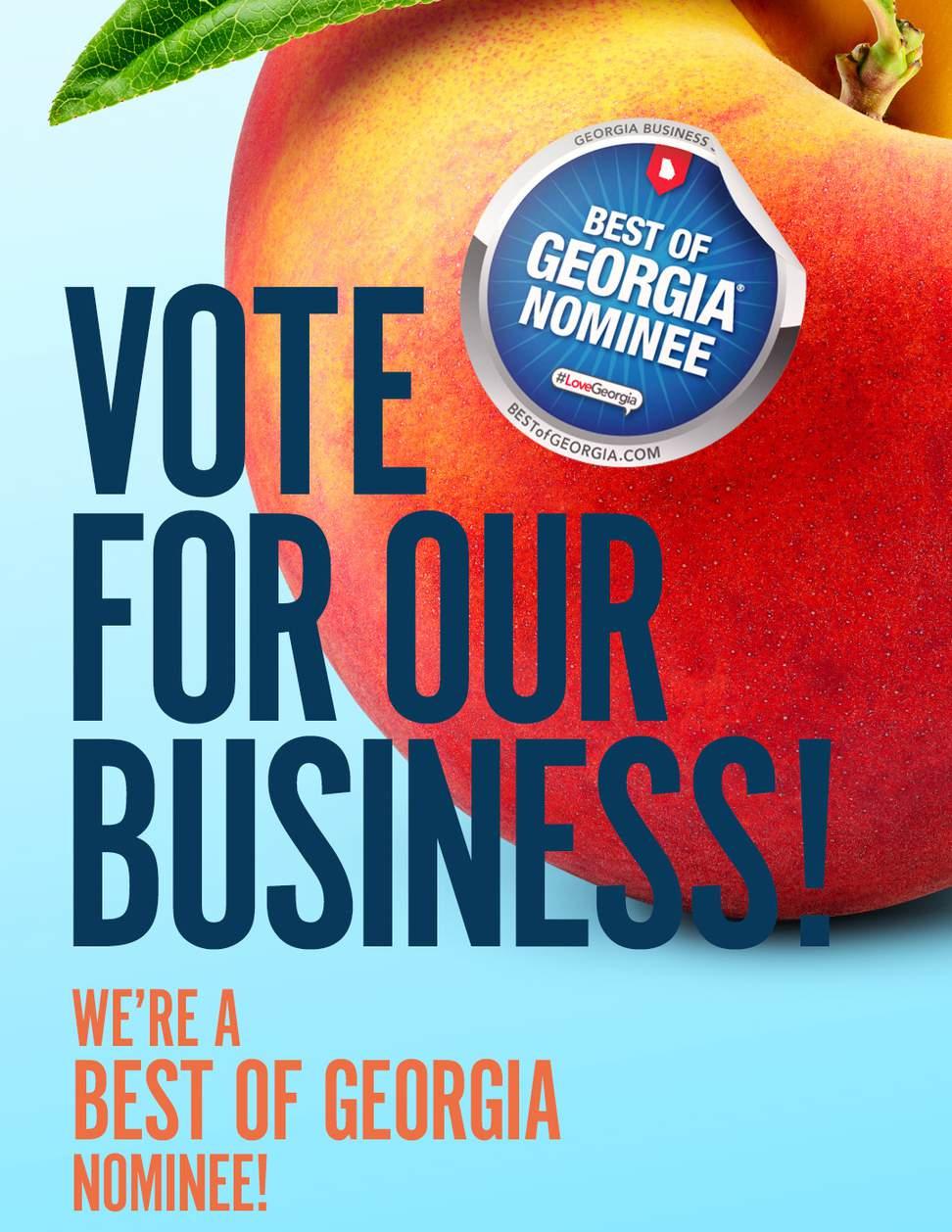


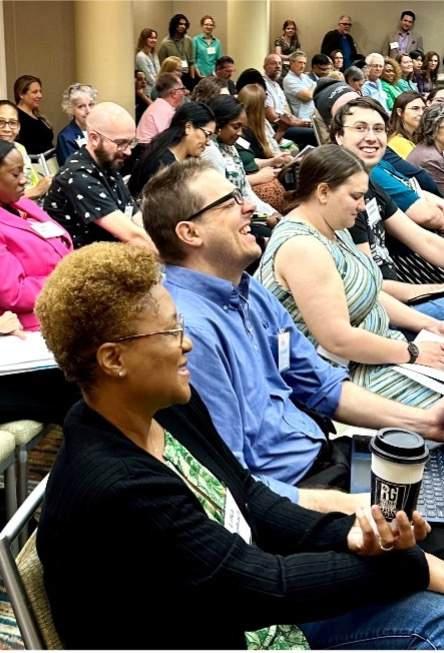

Writer’s
Writer’s Toolbox How to Tell the Story Behind Your Story
SPOTLIGHT:
Reader‘s Corner
The Mostly True Story of Tanner & Louise
SPOTLIGHT:
of
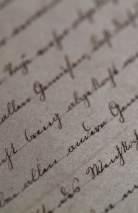
on the logistics. Where will you meet? How often? What will the format be? Will it be open to all, or for a specific genre or level of experience?

where you’ll go to find potential members. Arrange an informational meeting for people who may be interested Invite other writers, or post invitations or announcements wherever potential members can see them But remember that personal, one-on-one invitations are often the most effective ones

that it’s quality, not quantity, that counts Don’t be discouraged if you have a small turnout or response, especially at the beginning. Even if you have just one or two other writers joining you, you can benefit greatly from their input and they from yours. Also, with a smaller group, you can critique longer pieces, and go more indepth in your feedback discussions

byBettyLiedtke
A few issues back, I talked about writing groups, and what you should look for in order to find a good one, meaning one that gives you what you need in terms of feedback and support. Many writing groups provide help and feedback for writers of all genres and levels of experience. But others are genre-specific, or have requirements for membership, such as already being a published author.
If you can’t find a writing group in your area that meets your needs, or that includes writers in your genre or skill level, there’s another option open to you. You can start your own!
I have always enjoyed going to the theatre but had never considered playwriting until I became a reader, years ago, for a regional theatre’s annual new play competition. I was looking forward to reading brilliant new, cutting-edge scripts, and was surprised when many of the submissions I read were, well, nowhere near brilliant. That’s the point at which I thought, “Heck, I could do this!”
I signed up for a playwriting course at a nearby college, and I invited some of my classmates—as well as some of the other readers from the new play competition—if they would be interested in forming a writing group for beginning playwrights. We ended up with a small, but eager and enthusiastic group of writers interested in learning—and helping each other learn—to write stage plays. And although I never made it to Broadway, I had several plays that were produced in various playwriting festivals and events.
I later realized that playwriting wasn’t the type of writing I was best at or passionate about, but everything I learned during that time has helped me in the other types of writing I’ve done since then.
Joining a writing group is one of the best things you can do, no matter what type of writing you do—or want to do. If you can find a writing group that meets your needs—great! But if not, don’t let that stop you. Start one of your own. You’ll be amazed at what it will do for you—and your writing. ★
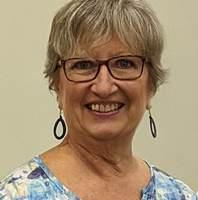
Betty Liedtke is a writer, proofreader, copy editor, and the author of Find Your Buried Treasure Nuggets Mined from Everyday Life

by GeorgeWeinstein
Whether you’re being interviewed about your published work, addressing a book club, discussing your new manuscript with a literary agent or a publisher, or talking to a potential customer at a signing event, you’ll need to answer the question about what inspired your book.
Your thoughtful explanation can open the door to more questions and a deeper interest in you as a writer (and maybe even more sales) A rambling, impersonal, or dismissive reply will send your listeners away disappointed and no longer willing to invest their energy in you
People seek connections with other people. Because creatives do something quite rare make art instead of merely consume it don’t underestimate the fascination factor. Your audience of one or dozens really does want to know the story behind your story as a means of understanding more about you.
Take some time considering the origins of your book ideas. Memoirists and other nonfiction writers draw most obviously on real-life experiences to produce their work, but novelists do, too. If you write fiction, ponder the idea that started you thinking about a character or situation until you said to yourself, “This could be a book!”
An engaging response will have personal hooks (i e , stories about yourself and/or your family), trial and error and setbacks, and eventual success due to perseverance and inspiration If you include these elements in your reply to such inquiries, I promise your listener will want to hear more

George Weinstein is the twice-former President and current Executive Director of the historic Atlanta Writers Club (AWC), which was founded in 1914.

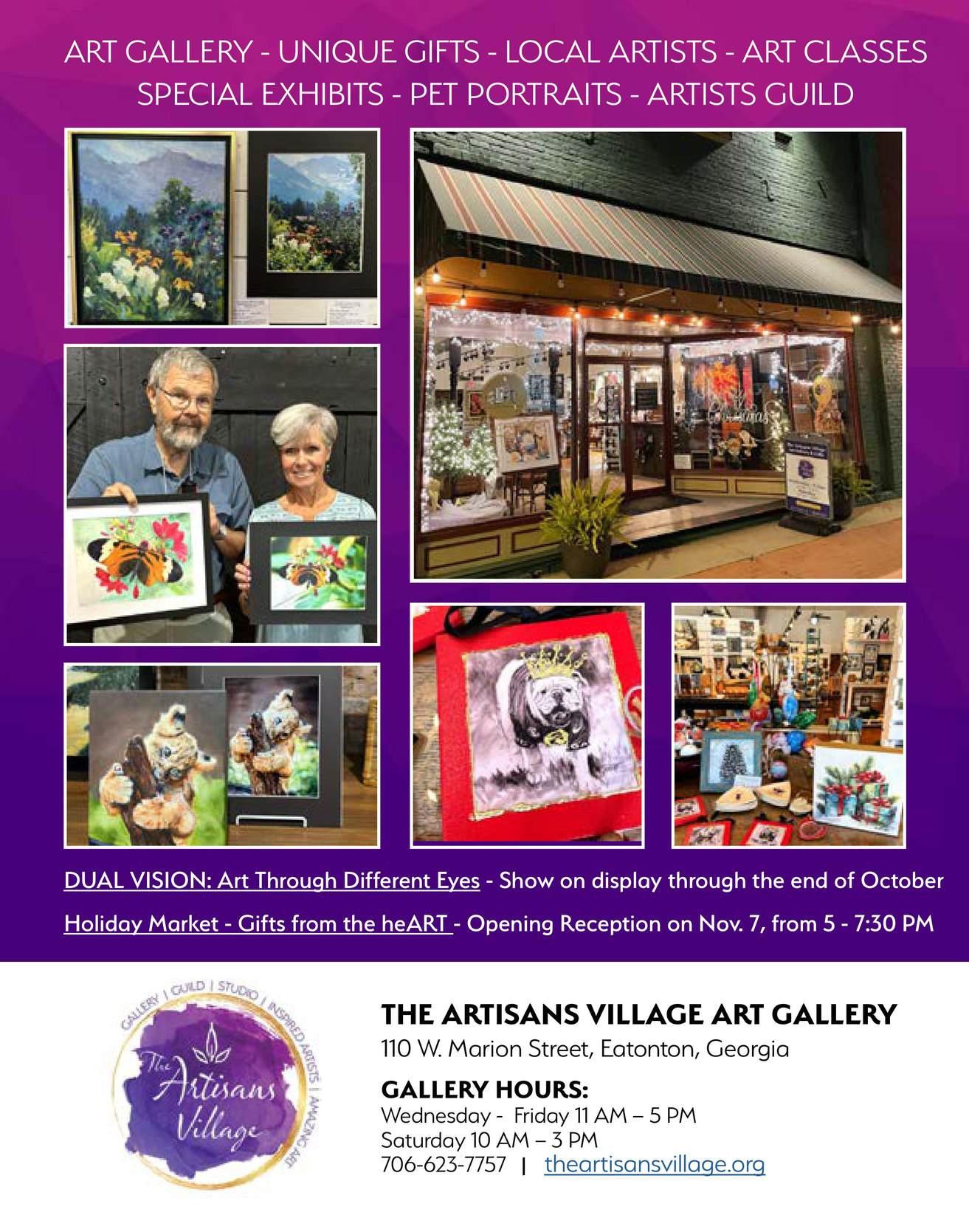
A writing prompt is a word, phrase, or sentence used as a catalyst to creativity. Many new authors find it helpful for getting unstuck when experiencing writer’s block. Each issue of Page Turner will provide suggested writing prompts by Distinguished Georgia Authors.
TrythissuggestionbyJanisseRay: Ilikeitwhen…

Janisse Ray is an author, poet, and naturalist. Born and raised in Baxley, Georgia, she earned a bachelor’s degree in English from Florida State University, and a Master of Fine Arts degree in Creative Writing from the University of Montana. Her first book, Ecology of a Cracker Childhood (1999), won the American Book Award, the Southern Book Critics Circle Award, and the Southern Environmental Law Center Award for Outstanding Writing on the Southern Environment. Her newest book is Craft and Current: A Manual for Magical Writing (2024). She was inducted into the Georgia Writers Hall of Fame in 2015.
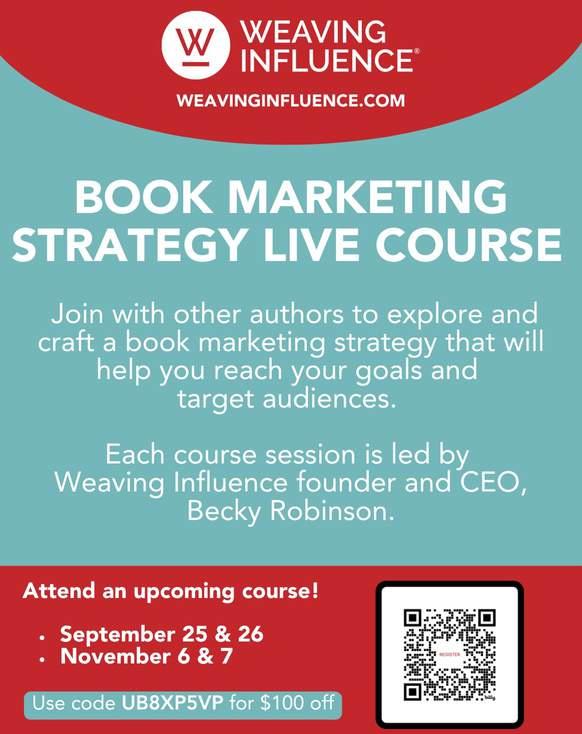
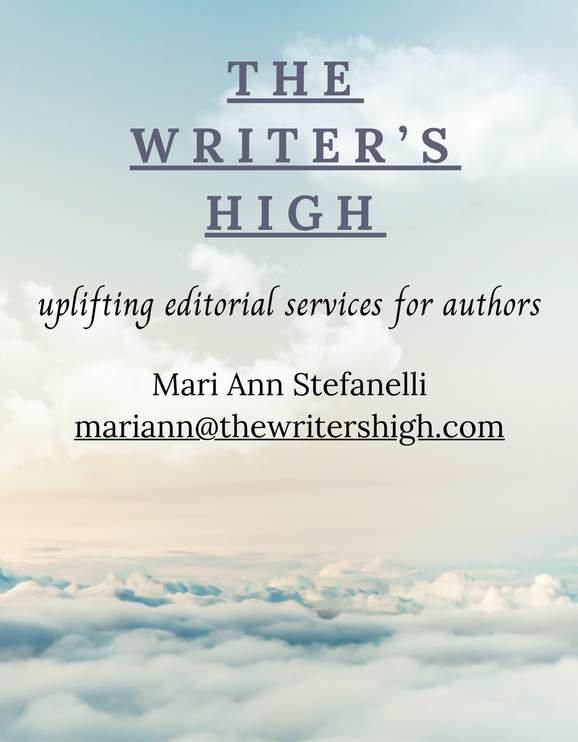

October1,1924
Authorof: Faith:AJourneyforAll; OurEndangeredValues: America'sMoralCrisis ChristmasinPlains &29MoreBooks!
Oct. 4 Roy Blount, Jr. (1941) Save Room for Pie; Long Time Leaving; Alphabetter Juice
Oct. 26 Pat Conroy (1945) The Great Santini; The Lords of Discipline; The Water is Wide
Nov. 8 Margaret Mitchell (1900) Gone with the Wind
Nov. 18 Johnny Mercer (1909) Lyrics for Moon River; Autumn Leaves
Nov. 30 Tayari Jones (1970) An American Marriage; Silver Sparrow; Leaving Atlanta
Dec. 12 Lillian Smith (1897) Strange Fruit; Killers of the Dream
Dec. 22 John T. Edge (1962) The Potlikker Papers; Southern Belly; Fried Chicken
Dec. 26 Jean Toomer (1894) Cane
I write because I love words—way too much, some would say—for their beauty and power and the multiple meanings they can convey. The person most responsible for this affinity is my mother, who, well before I could read them myself, was fond of regaling me with her favorite lines of poetry and the most rhythmic and moving passages of Scripture she had absorbed in the course of her many years as a Sunday school teacher. Once I could process the words on the page for myself, I plunged post-haste into the tiny local library’s summer reading program for kids. After making quick work of these ageappropriate offerings, it was on to expanding my horizons and my vocabulary with the headier stuff on the general reading shelves.
Grade school brought an inescapable onslaught of sentences demanding to be diagrammed, an assignment predicated on the importance of not simply choosing the right words but situating them in wellconstructed sentences where they stood to do their best work. My growing ambition to take my sentence construction up a notch or two got a major boost from my high school English teachers who uniformly required students to memorize passages from the classic texts we read.

James C. Cobb is a former president of the Southern Historical Association. He has written widely on the interaction between economy, society, and culture in the American South. He received his A.B., M.A., and Ph.D. from the University of Georgia, and served as the B. Phinizy Spalding Distinguished Professor of History at UGA. He was inducted into the Georgia Writers Hall of Fame in 2017.
by JamesCobb

Well before I had heard tell of any William Faulkner, I was awestruck by Thomas Wolfe’s capacity to meld words into sentences of almost terrifying gravity and raw lyric force. His vision of “each moment [as] the fruit of forty thousand years... and...a window on all time” would later inspire and inform a certain historian’s unrelenting efforts to convince readers outside the academic realm that the past holds the keys to unlocking even the most vexing puzzlements of the present. Writing primarily for my professional peers was one thing, but attempting to reach a much broader and less specialized audience introduced a new degree of difficulty best encapsulated in the old maxim that “easy readin’ is damned hard writin’.” Striving to supply easier “readin’” has meant untold hours of agonizing over whether I have written with sufficient clarity and force to get the job done. I persist in this relentlessly demanding exercise because it still provides the opportunity for me and my words to make a difference, not so much in what as in how others think about the world that history has bequeathed them.

IF YOU ONLY HAVE AN HOUR
For this issue, we asked a couple of authors with years of industry experience for their best marketing advice. Here’s what they had to say:
“Include one or two books you are reading by other authors, with blurbs and links, in your newsletters. These writers will appreciate the plug and often reciprocate with a mention and link of your works.”
Debra H. Goldstein, author of Kensington’s SarahBlairMysteries


“At the end of the day, when I’m tired and no longer productive, I create a bulleted list of ideas for tomorrow’s marketing goal(s). This way, when I wake up fresh, I have a list of ideas to dig into.”
—Terra Weiss, author of WingmomStories
byKimConrey &RogerJohns

Don’t be afraid to network with authors you mention in your newsletter. Ask them what’s worked for them, then adapt their techniques to your needs. Let’s work together to help each other out on the writing and marketing journey.
Kim Conrey is the author of the sci-fi romance series Ares Ascending and the urban fantasy, Nicholas Eternal. She was the 2023 Georgia Author of the Year for Romance.

Roger Johns is a former corporate lawyer, retired college professor, the author of the Wallace Hartman Mysteries, and the 2018 Georgia Author of the Year for Mystery/Detective

November 6 - 9, 2024 formation,




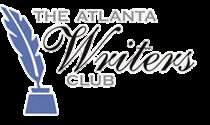
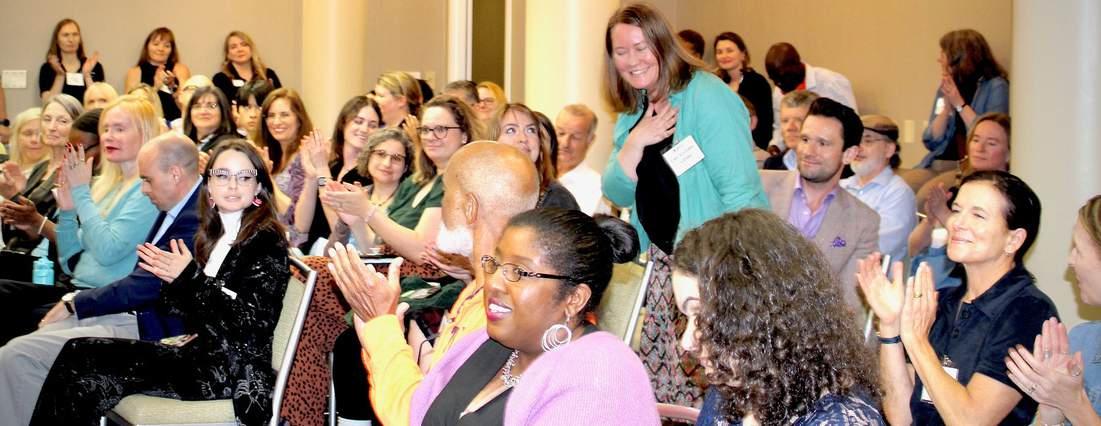
The AWC meets on the 3rd Saturday of each month at GSUDunwoody during the school year and at the Lilburn Library in the summer and features two speakers each time discussing different aspects of the craft and business of writing Online workshops throughout the year provide education about screenwriting, elements of craft, paths to publication, marketing, and more
Members can participate in an annual contest with cash prizes and three conferences per year: two focus on traditional publishing, with agent and publisher meetings, and one is devoted to self-publishing. The AWC also offers online and inperson critique groups around the region, discounts for events, and promotional opportunities for members with books for sale.
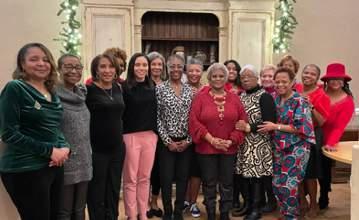
Our Lake Oconee Book Club was started in 2015. The club is all women; most live in the lake area, most are retired, and many share other activities together like pickleball or mahjong. Meetings are held on the third Thursday evening of every other month. All meetings have a host who provides refreshments, decorations, and/or gifts/trinkets. The host also facilitates the discussion. This often includes discussion questions sent out in advance or other creative ways of generating discussion.
Those are the facts. Now, for the fun stuff. This is a club that knows how to turn a book discussion into a memorable experience. For example, at a recent meeting, club members drew from a deck of cards that included a quote from a variety of sources (for example, “Love makes you do crazy things”). Members then tied each quote back to a theme and event in the book, leading to a fun and lively discussion. At another meeting to discuss Viola Davis’ book, Finding Me: A Memoir, each member painted unique and amazing versions of their own positive selfimage.
An added part of the book club is the “secretary”—a member who sends out a recap after each meeting. It has been a good way to keep everyone involved and connected. Prospective members are invited to attend by a current member. “Any woman is welcome who truly enjoys reading and feels comfortable sharing her thoughts with others in an open forum,” says club member Beverly Mullins.
And how are books selected? At the beginning of each year, members sign up to host one of the meetings. The hosting member selects the book to be read. The only requirement is that the recommending member has read the book herself. Books chosen range from fiction, to non-fiction, to historical fiction, to biographies, and from books as diverse as Alexander Hamilton by Ron Chernow, Becoming by Michelle Obama, and Where the Crawdads Sing by Delia Owens.

Across:
Authorof ThePrince ofTides, firstnamePat_____.
Authorof Wrappedin Rainbows, lastnameBoyd_____.
LaunchedtheNAACP’sjournal TheCrisis in1910, W.E.B.______.
Authorof ThePottlicker Papers, JohnT._____.
Authorof An American Marriage, firstnameTayari_______.
Authorof Strange Fruit, lastnameSmith
Authorof To Dance with the White Dog,lastnameKay
Authorof The Color Purple, firstnameAlice .
Authorof Tobacco Road, firstnameErskine .
Authorof The House Next Door, Anne Siddons.
AGeorgialakeisnamedforhim, firstnameSidney
Authorof About Three Bricks Shy ,Roy Jr






The Atlanta Writers Club (AWC), established in 1914, is celebrating its 110th year in 2024. Among its early members were the editors of Atlanta newspapers and magazines, celebrated poets, playwrights, journalists, professors, and lyricists. In 1918, they created the Authors’ Grove at Piedmont Park, where they planted forty-three trees over the ensuing decades to honor famous authors, from William Shakespeare, Rudyard Kipling, and Oscar Wilde to Edgar Allan Poe, O. Henry, and Jack London. The first tree planted there honored Jacques Futrelle, an Atlanta author of detective fiction, dubbed the ”American Conan Doyle,” who perished aboard the Titanic. Some of these trees continue to thrive, as does the club itself.
For its first ninety years, the AWC met at the Wimbish House of the Atlanta Woman's Club and at various other venues in midtown Atlanta and Buckhead. Since then, the AWC has made its home on the northern perimeter of the city: the Georgia State University-Perimeter College Dunwoody Campus provides the AWC with meeting space every month except June and July; the Lilburn Public Library becomes its summer home while the campus is closed.
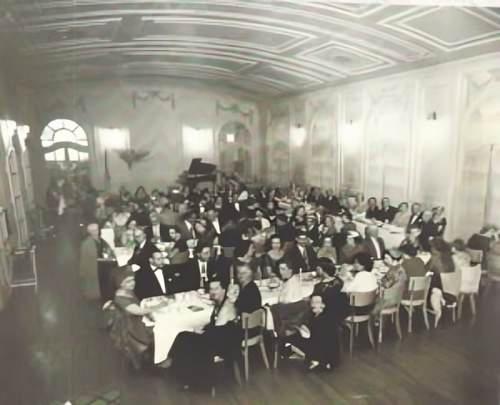
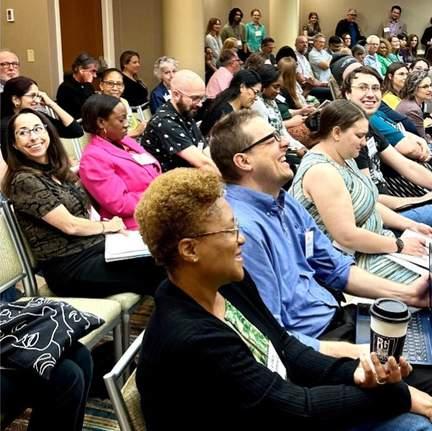
Though its founders were a small group of elites, today’s AWC membership is an inclusive, diverse group of more than 1,350 writers spanning the gamut of experience from beginners to bestselling, award-winning authors. Members range in age from teenagers to centenarians, and write everything from fiction, nonfiction, and poetry to screenplays, stage plays, and graphic novels. Some have seen their work turned into major motion pictures and television series, while others continue to write for themselves or their families.
The modern AWC exists to teach the craft and business of writing, support the local literary community, and foster more reading by the public. The club achieves its goals in numerous ways:
Dozens of critique groups online and inperson across the metro Atlanta area and beyond thrive because of the dedication of volunteer leaders who are driven by a simple mission: to help make the participants’ writing even better. This spirit of volunteerism extends to the AWC Board of Directors, an unpaid group who offer their time, creativity, and resources to provide the best possible learning experiences for current AWC members and to help recruit new ones.
Volunteers also make possible the monthly meetings in which at least two speakers each month address various aspects of the writing world and the writer’s life. Volunteers help to organize and manage the annual Atlanta SelfPublishing Conference, which turned three years old in 2024, and twice-yearly Atlanta Writers Conference, which presented its 30th such event in May 2024 and is offering its 31st on November 1-2, 2024.
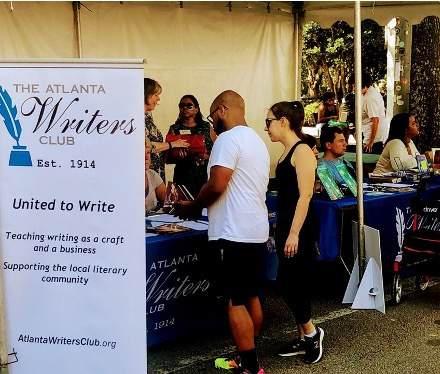
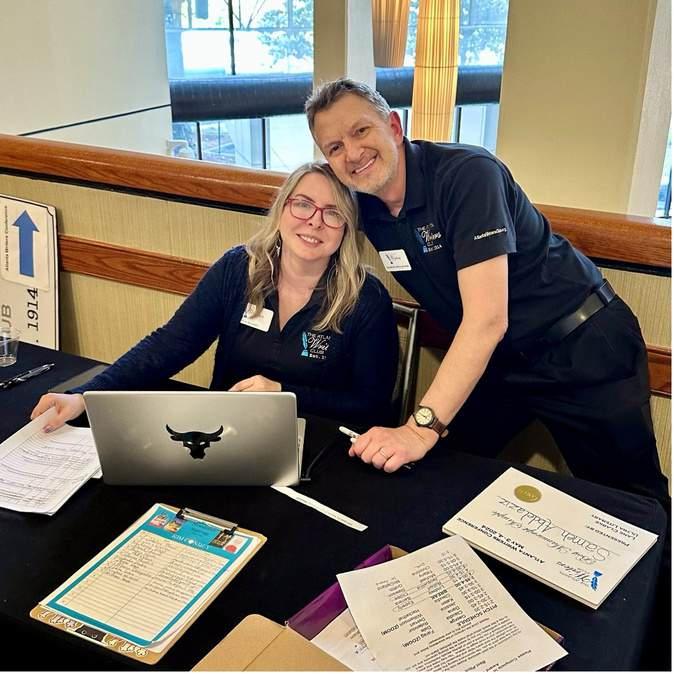
Conrey, VP of Operations, and George Weinstein, Executive Director.
To help make learning a regular activity, the AWC offers quarterly online workshop series and other periodic webinars. They reward the creativity and hard work of their members with an annual writing contest that features cash prizes, plaques, and an awards banquet. The AWC also salutes literary fiction produced by Georgians across the state with the biennial Townsend Prize for Fiction, named in honor of famed editor and creator of Atlanta Magazine, Jim Townsend. Since 2023, the AWC has partnered with Georgia Writers Museum (GWM) in the management of this literary prize.
AWC and GWM partner in other important ways as well, including contributions to Page Turner, an inaugural writers beach retreat scheduled for November 6-9, 2024, on St. Simons Island, and the museum’s annual writers retreat each February.


Additional ways the AWC helps its members are through the promotion of their publications on the club website, in their monthly eQuill newsletter, and through their online Bookshop.orgaffiliated bookstore. The AWC also offers an annual Member Moment opportunity at a monthly meeting, where a dozen members make presentations on stage about their work and themselves and then sell their books afterward.
Lastly, the AWC supports the local literary community and encourages more reading by the public through its financial support for, advertisement of, and participation in book festivals and writing events throughout metro Atlanta, including the Decatur Book Festival, the Book Festival of the Marcus Jewish Community Center of Atlanta, Black Writers Weekend, Johns Creek Book Festival, Carrollton Book Fest, and many others. ★
Those interested in the Atlanta Writers Club are encouraged to submit their contact information to the AWC mailing list at www.AtlantaWritersClub.org and attend a meeting as AWC guests.
On social media, you can find the AWC here:




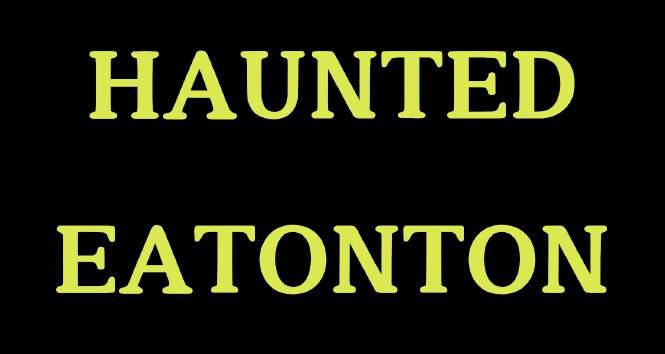

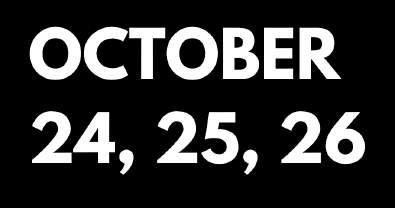


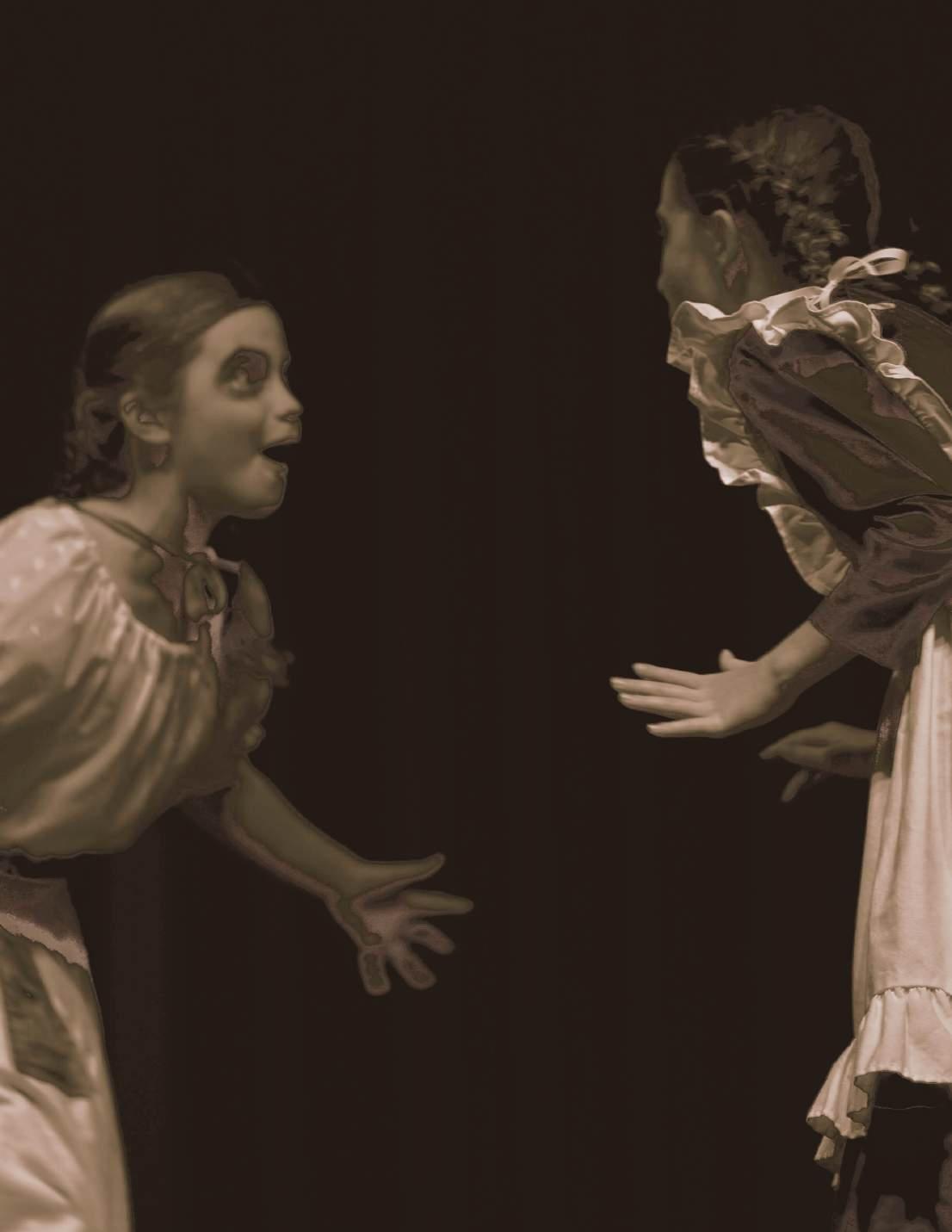
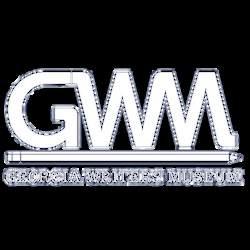



The first tree planted by the Atlanta Writers Club was for author Jacques Futrelle. Futrelle was born in Pike County, Georgia, and worked for the Atlanta Journal before moving up to Massachusetts, where he worked for several newspapers and then began writing short stories. Futrelle also became famous for being one of the many deaths on the RMS Titanic when it sank.
Futrelle’s best-known works were the short stories about Augustus S.F.X. Van Dusen, also known as “The Thinking Machine.” The stories are considered the American version of Conan Doyle’s Sherlock Holmes, because Professor Van Dusen would use logic and reasoning to solve crimes. Having always been a fan of Sherlock Holmes, I read several of Futrelle’s short stories, and found I especially enjoyed “The Problem of Cell 13.” In it, Van Dusen agrees to be locked in a prison cell on a bet that he cannot escape from the cell within a certain amount of time. Even with the warden watching him, Van Dusen manages to find his way out of the cell to attend dinner on the final night, with his friends and the warden invited
While I searched many of Futrelle’s stories for food ideas, and many had mentions of foods, I ultimately decided to share a recipe in celebration of “The Thinking Machine” that involves ingredients that modern science considers “brain foods.” The following recipe features:
Salmon and Walnuts - high in Omega 3 fatty acids, which are said to reduce anxiety and fight memory loss
Baby Spinach and Avocados - uncooked spinach and avocados are both good sources of Vitamin K, which is a folate credited with improving cognition and possibly fighting off the effects of dementia
Sunflower Kernels - a source of Magnesium, which helps reduce anxiety and stress
Balsamic Vinaigrette - helps with various issues in the body, including hypertension, which can be a major cause of strokes or dementia




The only ingredient in this recipe that is not considered by nutritionists to have a direct effect on brain health is the dried cranberries (which personally I am not a fan of, myself, but my wife would complain if I left them off). Cranberries are credited with urinary tract health, reducing inflammation, and improved digestive health, so I believe Van Dusen would see their inclusion as a NO BRAINER!

soning
2 tablespoons garlic powder
2 tablespoons brownsugar smoked paprika or sweet
1 tablespoononionpowder
1 teaspoonthyme
1 teaspooncelerysalt
1 teaspoonblackpepper
Salad(perperson)
3 cups Baby Spinach
¼ cupcubed Avocados
1 Tablespooneach chopped walnuts,dried cranberries, and sunflowerkernels
2 Tablespoons Vinaigrette
¼cupBalsamicVinegar
2TablespoonsHoney 1/2TablespoonMustard SaltandPepper ★

Affirmationscomeinmanyforms.Wewillfocus onthreeforms:coverendorsements,pre-sales, and book reviews on book-buying sites (like Amazon, B&N.com, or Goodreads). Endorsements and reviews can provide important power to the marketability of your book.
Endorsements are placed on the back cover or in the first few pages of your book. A super importantonemightgoonthefrontcover.How many is less important than how influential. When you send a potential endorser a draft of yourmanuscript,itneedstobeyourbestwork. Suggest their endorsement be short (1 or 2 sentences), since brief remarks are more likely to be read by a prospective buyer. You might evenwanttodraft2-3suggestedendorsements the endorser can use, edit, or ignore. Make it easyforthem!
Itisnotnecessarythatyoupersonallyknowthe endorser, but rather that you have a way to network to that person. It may require a bit of sleuth work, likely done on the Internet. Let’s sayyouwantanendorsementfromOprah.You learn she worked for News Channel 5 in Nashville in 1972, and her anchor was Chris Clark.ClarkattendedUGAandwasamemberof the ATO fraternity in 1962. Your uncle was one of his fraternity brothers that year. You might ask your uncle to connect with Chris to approachOprah…etc.Yougetthepicture.

Chip R. Bell is an award-winning, best-selling author and serves on the board of Georgia Writers Museum.
by ChipBell
Getting people to pre-order your new book on book-buying sites is crucial today. Presales enable the book-selling site to put sufficient copies of your book in inventory. Imagine doing a successful book launch, only to have Amazon report they are sold out (because they failed to anticipate the demand you would create). All that book promotional work for nothing. Even though abook-sellingsitecanorderthebookforthe prospect, you have lost the momentum of an impulse buy, and the prospect may choose another title which they can purchaseatthemoment.
Once your book is out, book reviews are central to communicating to your marketplacethatsomeoneshouldbuyyour book.Again,selectpeoplewhomyourtarget market respects, send them a complimentary copy of your book, and request they write a short review of your bookonAmazon,B&N.com,andGoodreads. Whileactualpurchasesplusreviewsappear first on the reviews, even the reviews of bookssentascomplimentarywillappearon the book-buying sites. Be sure to ask your cover endorsers to also place their reviews onthebuyingsites.
“Without promotion,” wrote master promoter P.T. Barnum, “something terrible happens...nothing!”Yourbookdeservesyour verybestingettingitinthehandsofpeople whocanbenefitfromyourgifts.





by JimAuchmutey

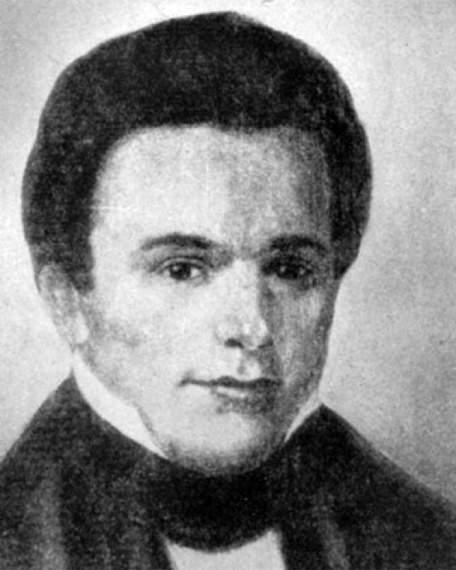
Elias Boudinot was a journalist, essayist, and translator best known as the founding editor of The Cherokee Phoenix, the first Native American newspaper in the United States. His life came to a violent end in 1839 because of disagreements over the removal of Cherokees from Georgia, an issue he wrote about numerous times.
The son of parents with mixed Cherokee and European heritage, Boudinot was born around 1804 as Gallegina “Buck” Watie in the “Indian country of north Georgia.” Sent north to a Connecticut missionary school, he converted to Christianity and adopted a new name in honor of the founder of the American Bible Society.
His education and name reflected the belief among some Cherokees that the only way for the nation to survive was to appeal to Americans and assimilate with their culture.
Boudinot translated Christian hymns and parts of the Bible into the Cherokee syllabary created by Sequoyah. He was also a noted orator who pleaded Cherokee causes to American audiences.
Boudinot moved back to Georgia in 1828
The paper was bilingual, publishing in English and Cherokee. The biggest story was the threat of the Georgia and U.S. governments to clear the Cherokee from the state to make their land available for white settlers. Boudinot was strongly opposed to removal, but later changed his mind when he saw that President Andrew Jackson was going to forcibly relocate the tribe, no matter what the courts said.
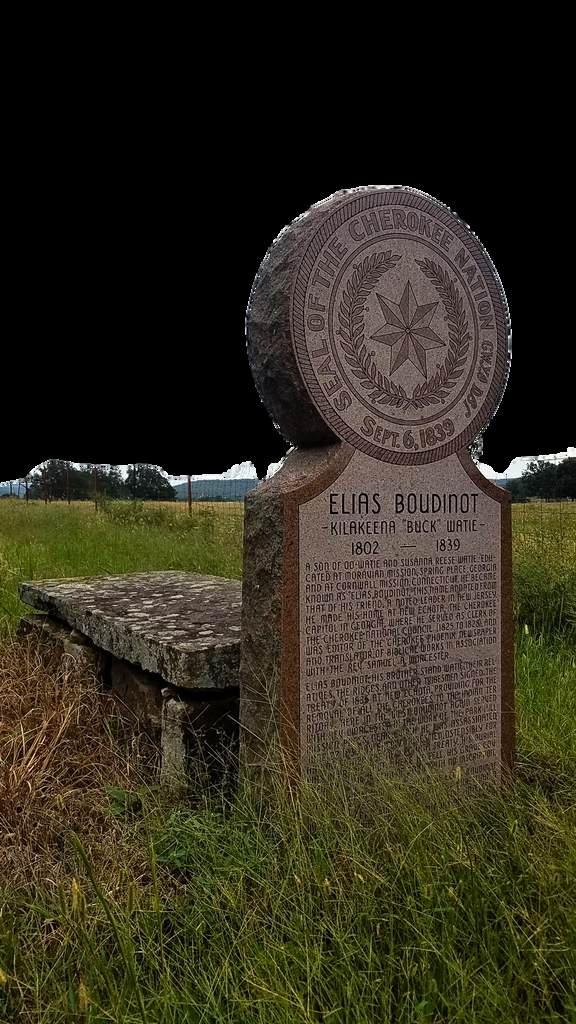

Boudinot argued that the Cherokee should get the best deal they could and leave Georgia. That position angered many in tribal leadership, as did the editor’s insistence that people on both sides should be allowed to debate the question in The Phoenix.
Then Boudinot crossed the line. He and others in his faction signed a treaty with the United States, ceding Cherokee lands east of the Mississippi. It proved to be his death warrant. In 1839, as he was preparing to move his family west, assassins killed him outside his Georgia home.
Boudinot’s legacy is complex and controversial, but no one ever questioned his courage. The Native American Journalists Association gives an Elias Boudinot Free Press Award. He was inducted into the Georgia Writers Hall of Fame in 2003, its first and only Native American recipient. ★


Jim Auchmutey is a former writer and editor for The Atlanta Journal-Constitution, specializing in stories about the South and its history and culture.
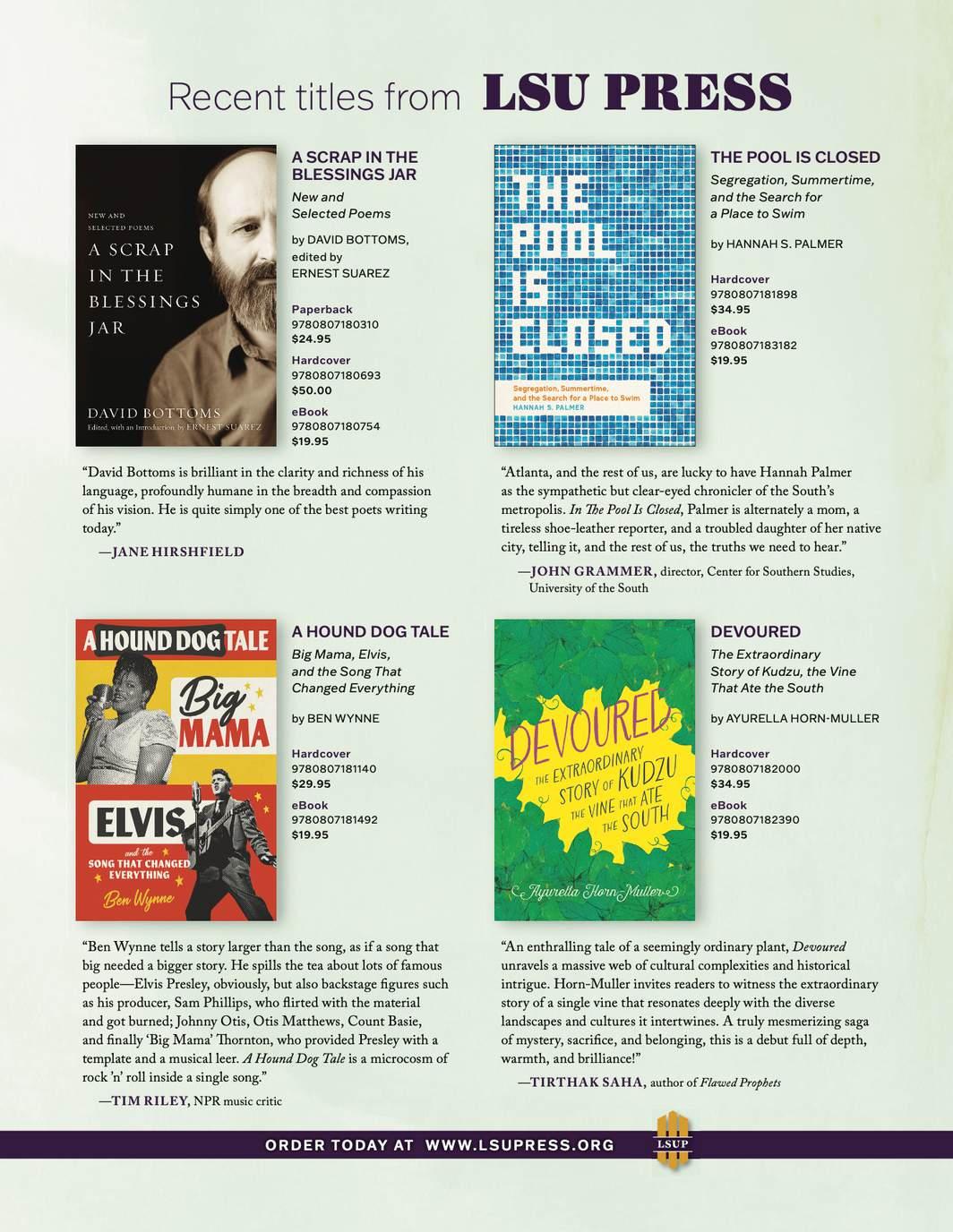
O W N S E N D

TEvery other year a panel of judges awards the Townsend Prize for Fiction to an outstanding novel or short story collection published by a Georgia writer during the past two years. The award is named for Jim Townsend, the founding editor of Atlanta magazine, the associate editor of Atlanta Weekly Magazine (of the Atlanta JournalConstitution), and an early mentor to such Atlanta writers as Pat Conroy, Terry Kay, William Diehl, and Anne Rivers Siddons

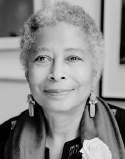
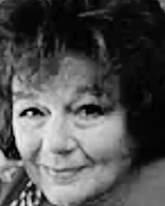
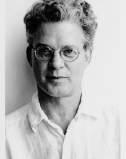
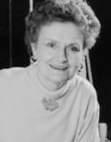
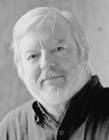



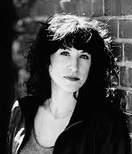


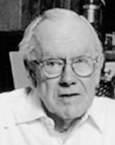
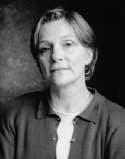




Celestine Sibley, Children, My Children
Alice Walker, The Color Purple
Philip Lee Williams, The Heart of a Distant Forest
Mary Hood, And Venus Is Blue
Sara Flanigan, Alice
Charlie Smith, The Lives of the Dead
Ferrol Sams, When All the World Was Young
Pam Durban, The Laughing Place
JoAllen Bradham, Some Personal Papers
Judson Mitcham, The Sweet Everlasting
James Kilgo, Daughter of My People
Ha Jin, The Bridegroom
Terry Kay, The Valley of Light
Judson Mitcham, Sabbath Creek
Renee Dodd, A Cabinet of Wonders
Kathryn Stockett, The Help

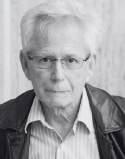



Thomas Mullen, The Many Deaths of the Firefly Brothers
Anthony Winkler, God Carlos
Mary Hood, A Clear View of the Southern Sky
Julia Franks, Over the Plain Houses
Xhenet Aliu, Brass
Sanjena Sathian, Gold Diggers
P A S T T O W N S E N D W I N N E R S

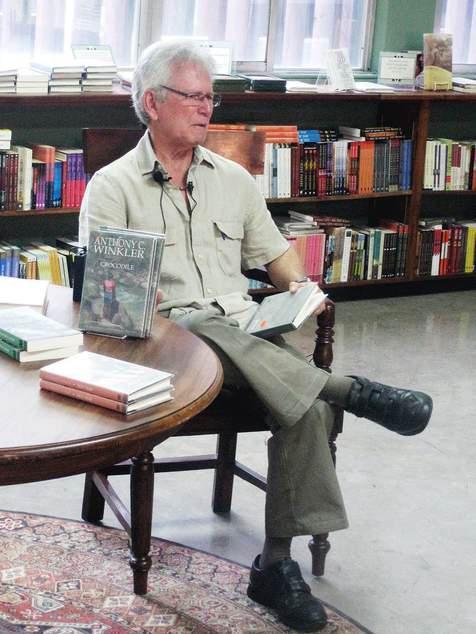
Anthony Winkler is one of Jamaica’s most gifted and successful writers. Two of his novels were made into movies. His original screenplay, The Annihilation of Fish and Other Stories, was made into a movie starring James Earl Jones, Lynn Redgrave, and Margot Kidder. It’s the story of a retired old Jamaican named Fish who has no purpose in life since his retirement, so he fantasizes that his remaining purpose is to wrestle a devil and throw him out of the house whenever he appears. Life gets complicated when he falls in love with his neighbor, Poinsettia, whom he persuades to become his referee.
His most famous work, a satirical novel entitled The Lunatic, was also made into a movie. Its main character is a crazy countryman named Aloysius who speaks to trees and animals. His life changes dramatically when he hooks up with a sex-crazed German tourist named Inga.
Tony’s first novel is also his favorite. The Painted Canoe took him several years to write, and more than ten years to get published. After many rejections, Kingston Publishers finally published it in 1984. His other works include The Duppy, Dog War, The Great Yacht Race, The Annihilation of Fish and Other Stories, and Going Home to Teach, which is an autobiographical account of his experiences during the turbulent ’70s at a school in the rural Jamaican town of Moneague.
At one time, Tony was very active in the Jamaican community, and was elected president of the Atlanta Jamaica Association for two terms. He helped coordinate Hurricane Gilbert relief efforts and scholarship programs. Tony and his wife, Cathy, were married in 1975 in the small village of Colgate in St. Ann, Jamaica. His daughter is an Industrial Psychologist in Charlotte, and his son is an English teacher on Saint Simons Island.
Adapted from “Influential Jamaican in Atlanta,” by Glen Laman, www.jamaicans.com. 2007.
Like Victor Hugo, Ernest Hemingway, and D.H. Lawrence, Anthony Winkler sometimes liked to write in the nude. The sign on his office door read "Genius at Work" on one side and "Go Away, I'm Sleeping" on the other. His daily lunch routine included watching Bob Barker and The Price is Right TV show. He believed he once lived as Jack London. His life mantra was "Be yourself and do your best."
Anthony "Tony" Winkler was born in Kingston, Jamaica. He left Jamaica at 21 to come to the U.S. to pursue a bachelor's and master's in English. As a young boy, an English teacher noticed his writing talent when he wrote a passage about being trapped. His teacher was amazed by his vivid description of events he had never seen.
Years later, working as a textbook salesman in California, he realized he could improve the writing in the books he was trying to sell. He wrote and submitted two chapters, earning a $1,000 advance on his first book. While famous for his Jamaican stories, Tony made his living writing college English textbooks.
He wrote twenty; one had 15 editions, another 13 editions. Additionally, he wrote nine novels, three non-fiction books, and three screenplays. He and his wife, Cathy, moved to Atlanta in 1979. Tony passed away in 2015 of Parkinson's disease.

Tony Winkler was a brilliant and disciplined author. He was prolific, passionate, and shy. With the help of his wife, Cathy, his daughter, Becky, and his son, Adam, we learned a side of Tony the public rarely witnessed. Here are a fewoftheirthoughts.
What was Tony's primary source of literary inspiration?
Cathy: His love for Jamaica and its people with whom he grew up. Sometimes, it was an embellishment of something he had heard or experienced; sometimes, it was the characters in his head screaming to get out! He loved Jack London'swriting."
Becky: Dad's favorite book was The Life of Samuel Johnson by James Boswell. He also loved West with the Night by Beryl Markham, Three Men in a Boat by Jerome K. Jerome, and books about the metaphysical, like Proof of Heaven by EbenAlexander.
What is something readers would find surprisingaboutTonyasawriter?
Cathy: "He rewrote and rewrote and rewrote and rewrote. But he could pen a screenplay in a week based on his book, which he did with The Annihilation of Fish (starring James Earl Jones and Lynn Redgrave) and the Jamaican film, TheLunatic.
What would have been Tony’s professional workhadhenotbeenawriter?
Cathy: He was also a teacher on occasion, and taught all about writing. I'm not sure Tony couldliveandbreatheandnotwrite.
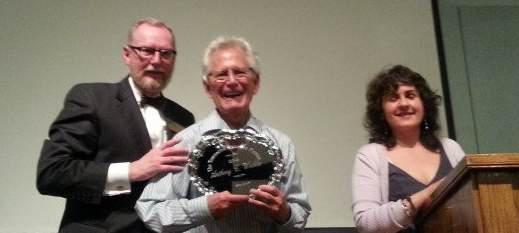
DescribeTony'swritingprocess.
Cathy: Tony would get up in the morning, eat breakfast, go to his office and work until lunch, take a nap, and get right back to it until about 4:00, and then exercise. When I first met Tony, I imagined he slept with a notebook next to the bed for notes at any time. But that was not the case. He was simply very,verydisciplined.
Becky: He walked the neighborhood almost every day. Even when he was losing his balance and would freeze up mid-movement due to Parkinson’s, he stillwalkedconsistentlyeveryday.
What were his hobbies and nonwritingactivitiesheenjoyed?
Becky: He loved watching cricket and soccer. He didn't have a bazillion friends, as he was rather introverted, but the relationships he had were deep andlasting.
Cathy: Tony loved to sail on Lake Lanier. He coached soccer while our son was in the sport. He loved to play Scrabble and golf.
What advice would Tony most likely giveanaspiringauthor?
Cathy: He would encourage rewriting and more rewriting. He believed that there was no such thing as writer's block. He trusted the darkness, as he called it. In fact, that expression became thetitleofhisautobiography. ★
Thanks to Adam Winkler for providing the photos for the Winkler profile!
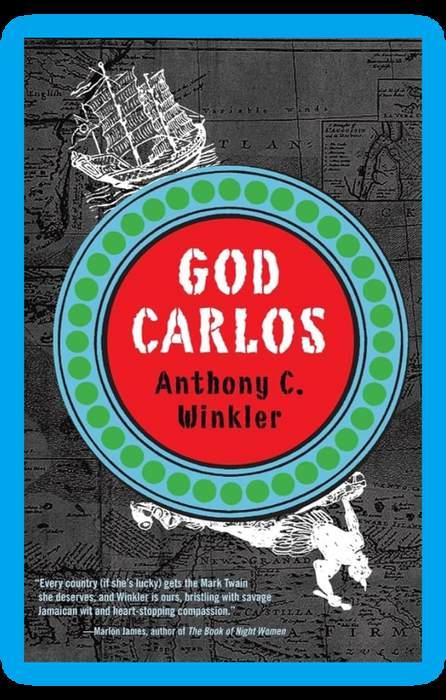

“Darkly irreverent . . . With “Darkly irreverent . . . With a sharp tongue, Winkler, a a sharp tongue, Winkler, a native of Jamaica, deftly native of Jamaica, deftly imbues this blackly funny imbues this blackly funny satire with an exposé of satire with an exposé of colonialism’s avarice and colonialism’s avarice and futility.” futility.”
Publishers Weekly Publishers Weekly

byAnthonyWinkler
God Carlos transports us to a voyage aboard the Santa Inez, a Spanish sailing vessel bound for the newly discovered West Indies with a fortuneseeking band of ragtag sailors. She is an unusual explorer for her day, carrying no provisions for the settlers, no seed for planting crops, manned by vain, arrogant men looking for gold in Jamaica.
Expecting to make a landfall in paradise after over a month at sea, the crew of the Santa Inez instead find themselves in the middle of a timid, innocent people―the Arawaks―who walk around stark naked without embarrassment and who venerate their own customs and worship their own gods and creeds. The European newcomers do not find gold, only the merciless climate that nourishes diseases that slaughter them. The Arawaks’ belief that the European arrivals were from heaven further complicates this impossible entanglement of culture, custom, and beliefs, ultimately leading to mutual doom.
“Winkler has a fine ear for “Winkler has a fine ear for patois and dialogue, and a patois and dialogue, and a love of language that love of language that makes bawdy jokes makes bawdy jokes crackle.” crackle.”
The New Yorker The New Yorker
The protagonist of Winkler's darkly irreverent new novel is a 16th-century Spanish sailor named Carlos. Despite his physical and intellectual shortcomings, Carlos has long entertained a "dream of being godlike." An opportunity to fulfill his heretical fantasy arises when he is offered passage on a ship bound for Jamaica. Once the ship arrives, crewmembers slay the native Arawak men and rape the women. Carlos nevertheless manages to find a believer in the young, impressionable, Orocobix, who kneels before "God Carlos," yet watches as his idol engages in many of the same activities as the crew. With a sharp tongue, Winkler, a native of Jamaica, deftly imbues this blackly funny satire with an exposé of colonialism's avarice and futility.




ReviewedbyGervaisHagerty
Let’s start with the basics: Colleen Oakley’s The Mostly True Story of Tanner & Louise gets five out of five gold stars. If you love a heartwarming, fast-paced, perfectly unexpected story about female friendship across generations, buy this book today.
Okay, now that we’ve got that out of the way, we can move on to the fun stuff starting with the two main characters. Louise Wilt is an octogenarian widow who’s secretly been on the lam since the ’70s. College senior Tanner Quimby just lost her athletic scholarship; the only times she’s not angry or depressed about moving back in with her parents is when she’s playing Horizon Zero Dawn on her PlayStation. Louise, who is recovering from hip surgery, could use some athome care, and Tanner needs a job that gets her out of the house. So, they become roommates.
The problem is, the only thing they have in common is their disdain for one another. Tanner, Louise thinks, needs to quit playing video games, put on a little makeup, and get a sense of humor. And according to Tanner, Louise is a stodgy old lady who smells like toilet water. The two women circle each other like lions before a fight until one night, Louise bursts into Tanner’s room with a bag of cash and an urgent need to drive to California.
Louise is on the lam. Tanner is her getaway driver (who, according to Louise, never seems to drive fast enough). Louise knows exactly where she’s going, and why. But Tanner and the reader do not.
The plot’s great, right? But do you want to know where Oakley really shines? It’s through her keen development of characters. Louise isn’t just a wanted person, she’s a real woman with real desires desires to flee, desires to protect, and desires for love. Carnal love, to be exact.
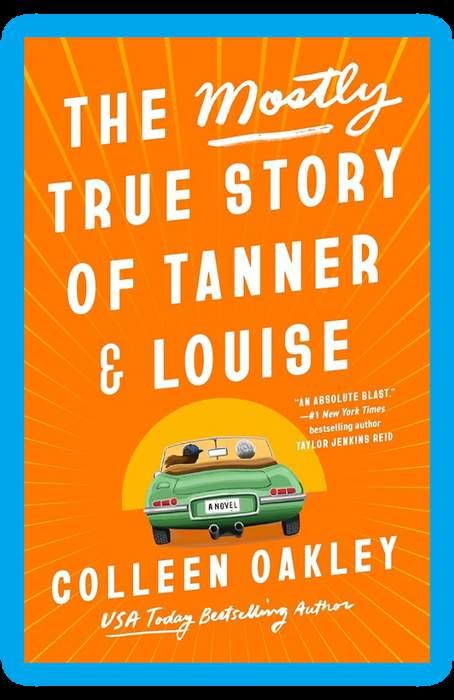
Oakley doesn’t shy away from writing about a one-night stand with an elderly bartender who leaves Louise with a smirk in the morning (but also a sore hip). And Oakley is not afraid of writing about hard truths, either. As the novel unfolds, the reader discovers key backstories centered around domestic violence and the fight to rescue battered women. You didn’t see that coming, did you? Neither did this newest member of Colleen Oakley’s fan club.
For certain, this book will make you laugh out loud and will give you paper cuts from turning the pages too fast. This leaves one question—will there be a sequel? ★

Gervais Hagerty earned a B.A. in psychology from Vanderbilt University and an M.B.A. from The Citadel, where she became a professor teaching Leadership Communications. She is the author of In Polite Company.


Colleen Oakley is the Atlanta-based USA Today bestselling author of The Invisible Husband of Frick Island, You Were There Too, Close Enough to Touch, Before I Go, and The Mostly True Story of Tanner & Louise. Colleen’s novels have been longlisted for the Southern Book Prize twice, and Close Enough to Touch won the French Reader’s Prize. Her books have been translated into more than 21 languages.
SUN: 12:00 PM - 6:00 PM MON - SAT: 10:00 AM - 8:00 PM
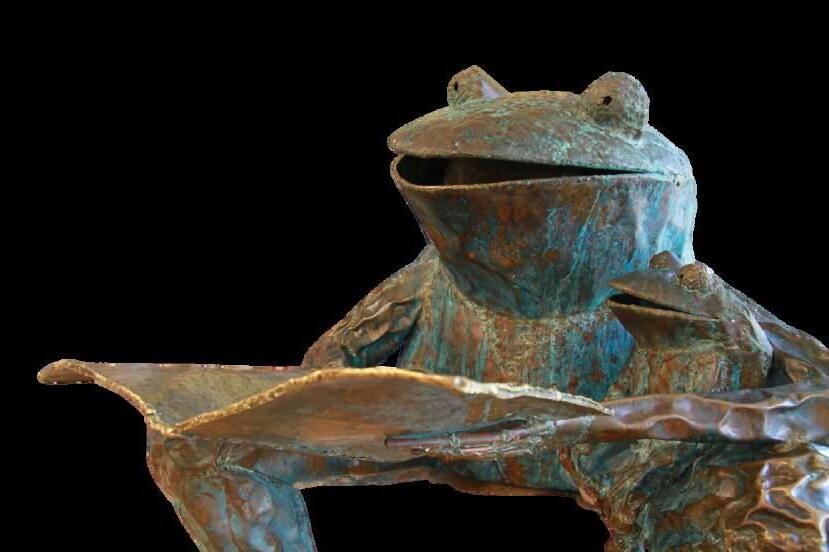



“It takes talent to write music, but it takes courage to write lyrics.”
—Johnny Mercer
“I was not a writer to begin with; I was a listener.”

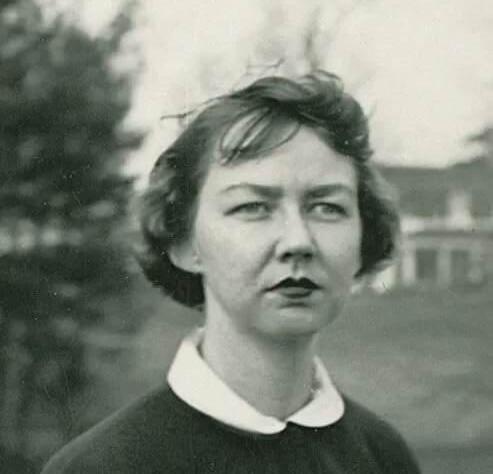
—Erskine Caldwell
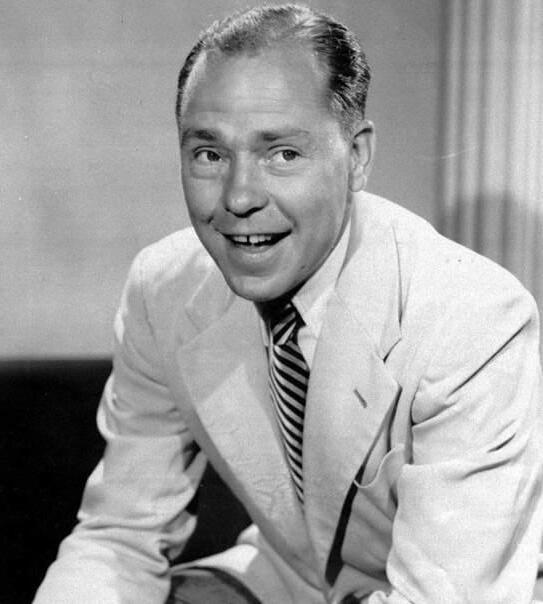
“Total non-retention has kept my education from being a burden to me.”
—Flannery O’Connor
by GeorgeWeinstein
We are cautioned as children, “Don’t judge a book by its cover.” Yet, any of us who is sighted makes a snap judgment whenever we glimpse a book cover. It might be a visceral love/hate response, a feeling of intrigue or confusion at what we’re seeing, a shrugging “meh,” or whatever, but we do have an immediate reaction.
Everything about a cover is subjective, and no cover will receive every reader’s approval. This applies to everything from colors and fonts to faces. Faces, for example, can be engaging or a turnoff, depending on the viewer, so it’s risky to show them. This is the reason so many characters depicted on book covers have their backs to the viewers.
Titles can also be problematic. The titles of the books we love often last in our memory long after we forget the authors’ names, but what constitutes a good one? Short and punchy or long and lyrical? It must be memorable while also being uncommon or, even better, unique—but not off-putting.
This is art and, by definition, subjective. You and another avid reader can look at the same book and have opposite reactions to the cover and title. Who’s right? You both are. But even if you love the exterior, it doesn’t mean the content will live up to that potential, and not being enamored with the cover and title doesn’t mean you won’t love the story that awaits you. That’s the wonder and mystery of creativity.

George Weinstein is the twice-former President and current Executive Director of the historic Atlanta Writers Club (AWC), which was founded in 1914


Little Shop of Stories is predominantly a children’s bookstore with a very, very knowledgeable staff, many of whom have worked there for well over a decade. As such, they offer exceptional service in terms of book recommendations for all ages, and are able to help customers find the next book they’ll love. Store manager Justin Colussy-Estes is renowned for his deep expertise on what’s hot and what’s not when it comes to children’s books. And, if the books are gifts, they wrap them for free.
The Decatur store will celebrate 20 years of operation in July 2025. As such, they are starting to have children shopping with their parents who, in turn, were once children shopping at the store a testament to their commitment to the customers and curated relationships over many years. In the words of co-owner Dave Shallenberger, “We look forward to someday recommending books to their children’s children’s children (in deference to the Moody Blues)!”


Visually, the shop is a magical extravaganza. Sketches from illustrators of children’s books line the walls. There’s the Goodnight Moon room. For better than ten years, they have been covering their floor with pennies, with some 400,000 applied so far in all sorts of interesting designs.
The store is not without national acclaim It has twice won the prestigious Pannell Award from the Women’s National Book Association. The Pannell Award recognizes bookstores that enhance their communities by bringing exceptional creativity to foster a love of reading and books in children and young adults.
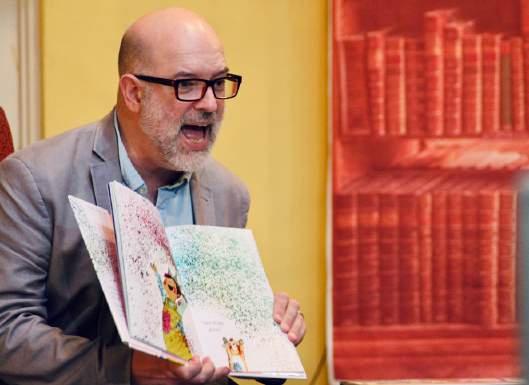



IN-PERSON
1st & 3rd Tuesdays @ 1pm
Lake Oconee Church of Christ, 4700 Carey Station Rd., Greensboro, GA 30642 ZOOM Last Tuesdays @ 1pm
“I’d like to think that in a world moving increasingly toward the impersonal, The Bookshelf is personal. Every indie bookstore strives for that, of course, but we think our location in a small, rural, southern town particularly lends itself to a ‘flesh and blood’ bookstore experience, where we know our customers—in person and long-distance—by name, and they know us. We hope our youngest customers grow up and remember how much the staff genuinely loved them, how much they absolutely belonged here. We want customers to know The Bookshelf isn’t run by robots; it’s run by neighbors and friends.”

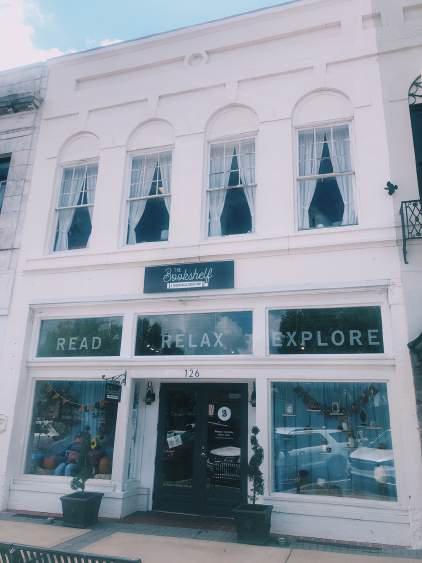
Those words were how the folks at The Bookshelf in Thomasville, Georgia, described their “secret sauce,” the feature that sets them apart from others. But The Bookshelf is more than “neighbor serving neighbor.” They look for creative ways to surprise their customers, creating experiences that get people talking. Their tactics range from the “poem dispenser” at the front of the store ($.50 gets you a staff favorite poem to take home!) to Silent Reading Nights at the local wine bar, outdoor story times, free hot dogs on Indie Bookstore Day, and personally signed notes with each online order.
They even host Reader Retreats at their store— weekend-long, summer-camp-style events where readers from all over the country come to Thomasville and celebrate all things literary. The Bookshelf treats them to a dinner party inside the bookstore (one of their signature “Pen to Plate” dinners), a live podcast at the local theatre, a book club discussion, and an author talk plus signing. By partnering with local businesses, they ensure Reader Retreats aren’t just good for the bookstore, they’re good for Thomasville.
When asked about their future, store owner Annie Jones stated, “We want to always change to meet people where they are. We’ll promote digital audiobooks, sell covers for your eReader, and create funny TikToks. But we’ll also continue to host bookish events for our in-person community as we think of creative ways to include our longdistance customers in our mission.” ★
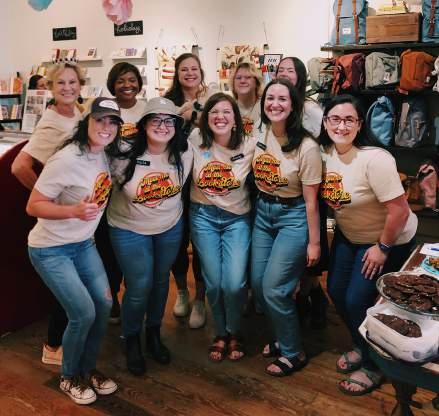



Sunsheray T. Carter is more than just an author; she's a storyteller extraordinaire whose tales resonate with readers of all ages. Before becoming an author of children's literature, Sunsheray pursued studies in finance and marketing, laying the groundwork for her creative endeavors to come. Drawing inspiration from her diverse passions, Sunsheray infuses her stories with warmth, wisdom, and a touch of magic. We caught up with Sunsheray for a brief interview.
1.Was there a particular person who was helpful to you in finishing your book?
My nephew lives in Connecticut, where I am from. My goal was to gift him with a children’s book by his 5th birthday so he will have something tangible to show how much he means to me. I also dedicated the book to my other niece and nephew to make it special for them as well.
2. What was the biggest obstacle to becoming a published author?
I think timing was my biggest obstacle I joined the Atlanta Writers Club a few years ago with the goal of networking and learning the business side of writing. I gained a lot of knowledge and met some wonderful people in the process.

3. Tell us about your writing process (when, where, unique features, etc.).
It starts with an idea from some random moment in my life. I think about the ending of the story first, keeping in mind the theme I want to convey from the overall story. Then I add challenges that cause tension the character must overcome There are times when I’m writing the end and middle parts of the story while figuring out how the beginning will start. The story must flow together even though developed in parts.
4. Who is your favorite author and why?
Quincy Jones. I love reading memoirs to learn more about a person’s journey. I am inspired by his ability to compose and create beautiful music.
5. What advice would you give an aspiring author that could help them complete the process from idea to inventory?
Write down any idea that you have. Good ideas come at random moments. Make a plan with small short-term goals to help you reach your overall goal. Network with the right organizations and attend events that will help you gain the knowledge and experience that will help you achieve the small goals. ★
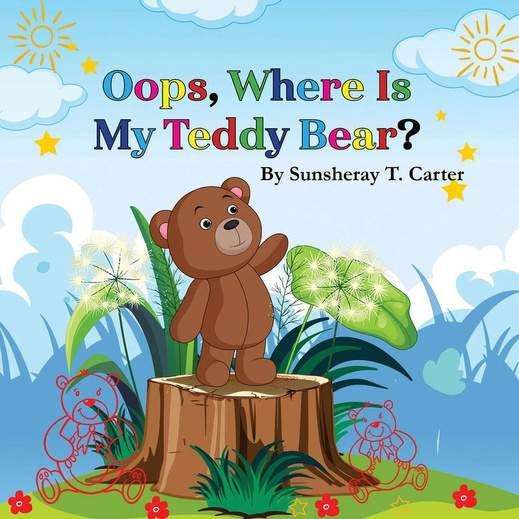




ProfiledbyEmmeClause
Calling all cat lovers! In Veto, The Governor’s Cat, experience life through Veto’s eyes. Written by former Georgia governor Nathan Deal, with illustrations by Cheryl Riner Hodge, this book explores themes like kindness, friendship, grief, and self-discovery. Perfect for younger readers, this short chapter book takes you through life as Veto grows up. Join Veto as he makes new friends, like Oliver the Owl, and lives in the Governor’s mansion during Christmas and Easter celebrations. The most important thing Veto learns is to be thankful for everything—his friends, his courage, his brother, and so much more. A portion of the proceeds from Veto, The Governor’s Cat go to support literacy projects and other educational initiatives through the work of The Deal Foundation. Join Veto as he overcomes the challenges that come with life, but more importantly, experiences the beauty and joy of being alive.
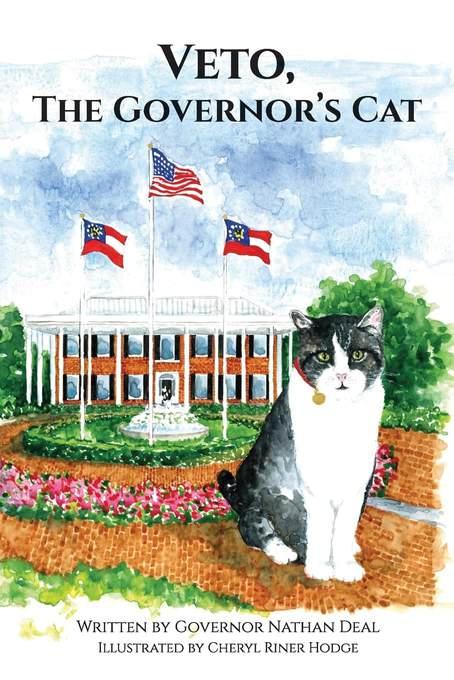
Booklogix August 14, 2024
60 pages
For Ages 7 - 10
Nathan Deal has served the citizens of the State of Georgia as a State Senator, a United States Congressman, and as the eightysecond Governor of Georgia
After he left public service, his wife, Sandra, asked him to write a children's book she could read in the many schools that had made requests of her

ProfiledbyEmmeClause

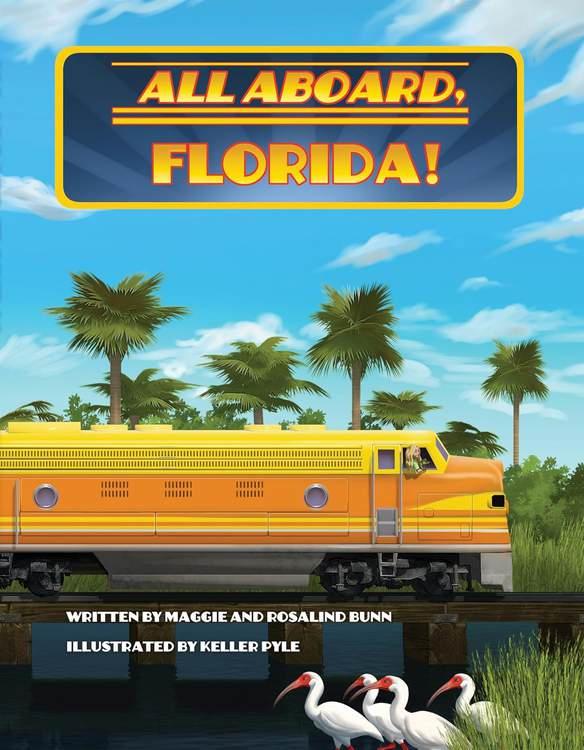

Rosalind and Maggie Bunn are the authors of several picture books, including the All Aboard! Series Rosalind is a veteran elementary school teacher and lives in Marietta, Georgia. Maggie Bunn also lives in Marietta, and has collaborated with her mom on several books Their last book together was All Aboard, Louisiana!
Our neighbor state of Florida boasts a wide array of amazing sights to see—from the emerald waters of St. George Island to the historic streets of St. Augustine. You can visit them from the comfort of your own home in the brand-new installment of the All Aboard series, All Aboard, Florida! written by Maggie Bunn and Rosalind Bunn. Tag along with the young protagonist as she travels through the state’s diverse landscapes. The illustrations by Harrison Keller Pyle bring the beautiful landscapes and interesting animals to life. All Aboard, Florida! not only takes you through the beautiful natural features of the Sunshine State, but takes you to the NASA rocket launch, too! Kate Seng, owner of Poe & Company Bookstore in Milton, Georgia, referred to it as, “A colorful and creative journey through Florida, engaging readers with its rhythmic, rhyming pattern. A great addition to storytime!”
ProfiledbyEmmeClause
Get ready for a bone-chilling adventure with Jerry and her friends! In The Lumbering Giants of Windy Pines, a spooky debut by Gabe Netz, join Jerry and her trusty wheelchair as she ventures into the forest to save what is left of her family. This book is sure to keep you on the edge of your seat as you traverse through dark woods surrounding the Slumbering Giant motel where Jerry and her mother live, which seems to be haunted itself. When her mom doesn’t come home one morning from her “special work” as she calls it, Jerry knows she must rescue her! Joined by her pocket-size imaginary dragon, and Chapel, a new friend with a fascination for the supernatural, Jerry goes on the hunt to find her missing mom. Kirkus Reviews describes it as “An action-packed, heartwarming tale of friendship, family, monsters, and magic.” Through their journey, they will discover the true nature of her mom’s job, and what the “demons” in the woods really are. Everything is not always what it seems…


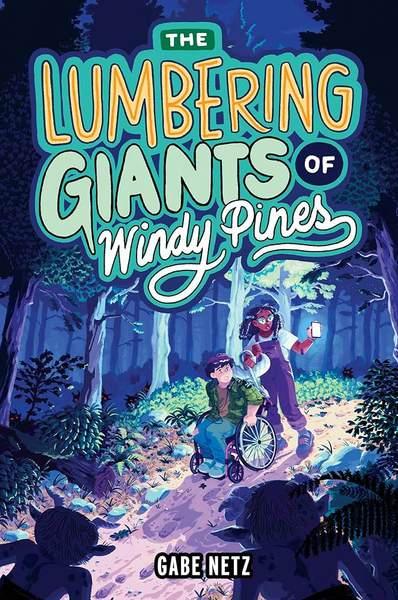
Clarion Books March 12, 2024 208 pages For Ages 8 - 12





ProfiledbyEmmeClause
“The smallest spark can bind two hearts...or start a revolution.” New York Times bestselling author Jordan Ifueko’s new romantic standalone fantasy, The Maid and the Crocodile, is set in the world of Raybearer, which was named one of the American Library Association’s Top Ten Best Fiction (2021), among numerous other accolades. In this novel, you follow protagonist Small Sade as she ventures through the magical capital city of Oluwan, looking for work. However, things quickly go off plan. She meets the powerful being known as the Crocodile, and their fates are bound. Small Sade’s gift as a Curse Eater, which gives her the ability to alter people’s fates by cleaning their houses, intrigues the Crocodile. How will she establish herself in Oluwan with her newfound connection to the Crocodile? And what will become of their relationship? In this magical West African-inspired world, Ifueko addresses real-world issues like oppression and disability representation, perfect for young adult readers. Her striking prose is packed with symbolism and imagery that will stay with you long after you’ve read it.
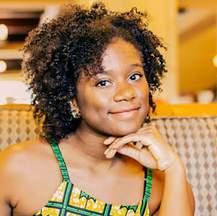
Jordan Ifueko is a Nigerian American writer of fantasy and young adult fiction. She is best known for her novel Raybearer, which became a New York Times bestseller, and its sequel, Redemptor She now lives in the greater Atlanta area.

BONNIER BOOKS August 1, 2024 400 pages For Ages 12 - 18
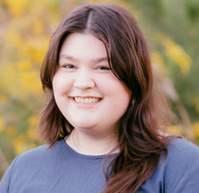
Emme Clause is a freelance writer for the Eatonton Messenger and the graphic designer for Page Turner She completed a degree in creative writing at GCSU. Now she is pursuing her Master’s at University of Alabama online






byEmmeClause
He attended Georgia State University while doing freelance writing as well. He initially didn’t plan on staying at GSU for the full four years, but he was glad he did because he met his wife, Pam, at the student newspaper, The Signal. He wrote for other publications before he began his work at The Atlanta Journal-Constitution.
Jim spent almost 30 years as both a writer and editor at the AJC. Here, he not only honed his writing abilities, but met countless important figures in history. These experiences helped build his strong character as a person who cares deeply about his fellow humans. At the AJC, his stories revolved around the South as well, and he was honored to speak to influential figures like John Lewis, Newt Gingrich, and Jimmy Carter.
Jim received the Cox Newspapers chain’s Writer of the Year twice, and was honored by the Robert F. Kennedy Journalism Awards, the Associated Press, and the Sigma Delta Chi journalism society.
Past the smoke of the grill, you'll find journalist and writer Jim Auchmutey at the helm with a smile on his face. Atlanta native Jim specializes in Southern historic and cultural writing, and his passion shines through everything he does...
Jim’s parents were raised in rural Georgia during the Depression, and later moved to Atlanta, where he and his three siblings grew up. Jim recalls having a very happy childhood. His father, an accountant, was a classic Southern storyteller, whose ability no doubt influenced Jim! His mother, trained as an English teacher, insisted on good grammar and also kept his writing in check, providing him with all the right ingredients to be a skilled writer.
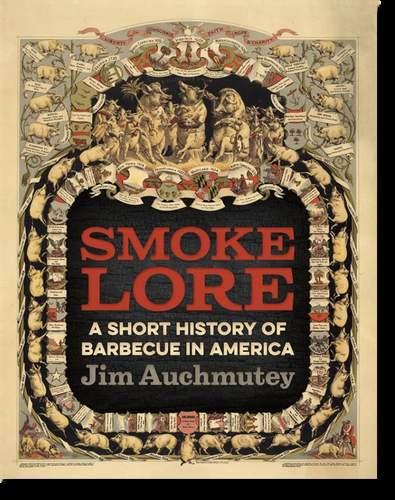
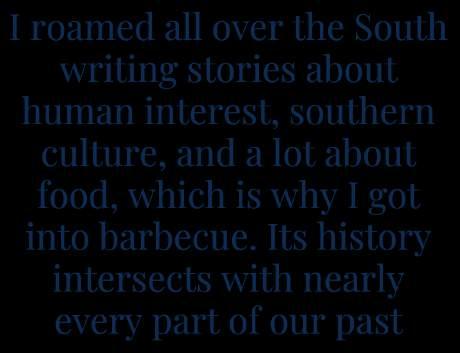
His time as a guest curator for the Atlanta History Center’s Barbecue Nation exhibition helped inspire his latest book, Smokelore: A Short History of Barbecue in America (2019). Jim also grew up hearing about barbecue, as his father’s side has a long lineage of pit masters and Brunswick stew makers. Smokelore was chosen as one of Ten Books All Georgians Should Read by the Georgia Center for the Book, as was his book, The Class of ’65.
Jim’s love for food writing doesn’t end there! Before Smokelore, he co-authored The Ultimate Barbecue Sauce Cookbook (2001) with food editor of the Journal-Constitution at the time, Susan Puckett.
His first book, The Class of ’65: A Student, a Divided Town, and the Long Road to Forgiveness (2015), tells the story of Greg Wittkamper, who grew up at Koinonia, a Christian farming community in southwest Georgia best known as the birthplace of Habitat for Humanity. The community was boycotted, and Greg bullied and beaten for their support of racial equality during the civil rights era. This touching and emotional story from the segregated South is about growth and redemption. The Class of ’65 was featured on C-SPAN and was a New York Times bestseller.
Nowadays, Jim is an integral part of GWM. Jim was struck by the small-town charm of Eatonton, which he often drove through in his travels across the state. Once he attended one Meet the Author event, he never looked back. Currently, he heads a virtual six-week long narrative non-fiction workshop for GWM, which is in its sixth year. Many of those who’ve taken his workshop have gone on to publish their own work!
Jim’s love for the South’s culture, food, and history is apparent through everything he does. His legacy as a writer is a testament to his passion. ★
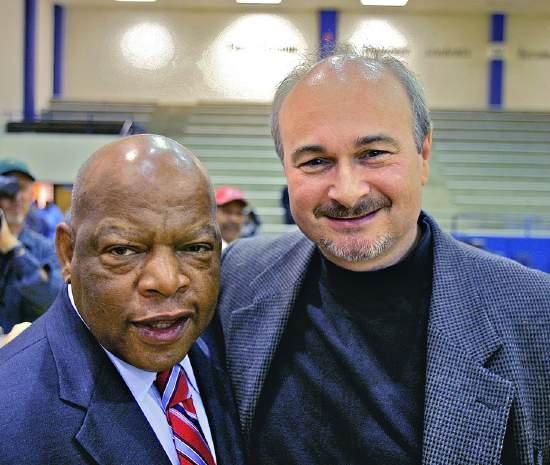
Congressman John Lewis and Jim Auchmutey

Emme Clause is a freelance writer for the Eatonton Messenger and the graphic designer for Page Turner. She completed a degree in creative writing at GCSU Now she is pursuing her Master’s at University of Alabama online.
October, November, December 2024
Atlanta Writers Club
Locations vary, please check the website.
October 4
Online Workshop: New Author Bootcamp: Self-Publishing 101
October 19
In-person at GSU-Dunwoody
October 22
Online Workshop
November 1-2
31st Atlanta Writers Conference at Westin Atlanta Airport Hotel
November 6-9
AWC-GWM-St. Simons Island Writers
Writing Retreat on St. Simons Island
November 15
Online Workshop: New Author Bootcamp: How to Plan a Book
November 16
In-person at GSU-Dunwoody
November 20
Online Quarterly Webinar Series Part 4
December 12
Online Quarterly Webinar Series Part 4
December 13
Online Workshop: New Author Bootcamp: How to Write a Book
December 21
In-person at GSU-Dunwoody

Georgia Writers Museum 109 S. Jefferson Ave. Eatonton, GA 31024
October 1
Meet the Author with Tracey Wood
October 11
Spooky Story Contest Closes
October 17
GA Hall of Fame Book Club Tobacco Road by Erskine Caldwell
October 24-26
Haunted Eatonton Ghost Tours
October 31
Spooky Story Winners Announced
November 5
Meet the Author with Colleen Oakley
November 15 Book Launch with Peter Selgin
November 23 Writers Workshop with Stacia Pelletier
December 3
Meet the Author with Tori Whitaker
Interested in advertising in Page Turner? Contact Chip Bell at chip@chipbell.com
Andalusia 2628 N. Columbia St. Milledgeville, GA 31061 (478) 445-8722
BookLogix
1264 Old Alpharetta Rd. Alpharetta, GA 30005 (470) 239-8547 booklogix.com
Brave + Kind Bookshop 722 W. College Ave. Decatur, GA 30030 (470) 440-5714 braveandkindbooks.com
Cold Case Investigative Research Institute coldcasefoundation org
Greensboro Writers Guild Lake Oconee Church of Christ 4700 Carey Station Rd. Greensboro GA 30642
Little Shop of Stories 133 E. Court Square #A Decatur, GA 30030 (404) 373-6300 littleshopofstories.com
Magic Time Literary Publicity magictimeliterary.com
The Atlanta Writers Club atlantawritersclub.org


The Artisans Village 110 W Marion St. Eatonton, GA 31024 (706) 623-7757 theartisansvillage org
The Bookshelf
126 S Broad St. Thomasville, GA 31792 (229) 228-7767 bookshelfthomasville com
The Plaza Arts Center 305 N Madison Ave. Eatonton, GA 31024 (706) 923-1655 plazacenter org
The Writer’s High thewritershigh.com
Print & Sign Solutions 1023 Lake Oconee Pkwy, Suite B Eatonton GA 31024 (762) 220-1110 printsignsolutions com
Smith Communications 100 N Jefferson Ave. Eatonton, GA 31024 (706) 485-3501
Southern Indie Booksellers Alliance 51 Pleasant Ridge Drive Asheville, NC 28805 (803) 994-9530 sibaweb com
Sylvia's Coffee 111 S Jefferson Ave. Eatonton, GA 31024
Visit Eatonton 108 W Marion Street Eatonton, GA 31024 (706) 485-7701 visiteatonton.com
Weaving Influence weavinginfluence com




